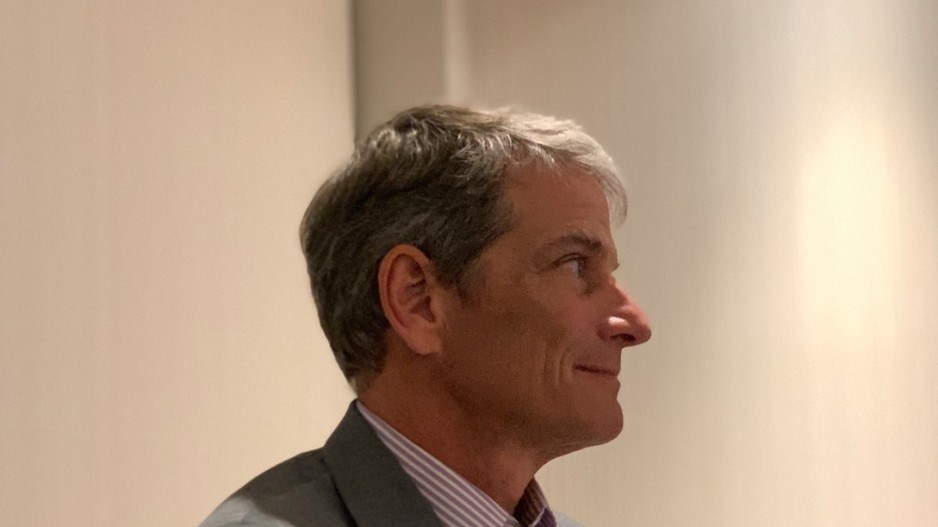Among the changes that could take place if a new Canadian government is elected on October 21 is an alteration in how much money is provided to fund public-transportation capital projects.
TransLink CEO Kevin Desmond told Business in Vancouver September 9 that he would like Canada to have a stable funding model that is similar to that in the U.S.
Former President Lyndon Johnson established the U.S. model in 1964, when he signed the Urban Mass Transportation Act into law. It provides for 20% of gas taxes and vehicle fees to be earmarked for public-transportation upgrades.
“You’ve had an ongoing commitment using federal gas-tax money on an 80-20 ratio, where 20% goes to public transit and 80% goes to roads in the U.S.,” said Desmond, who is American and was previously general manager of King County Metro Transit in Washington State. “It has to be renewed every six years, but that portion of the gas tax has been locked in for now for decades.”
There is no comparable Canadian law that mandates a certain level of funding for public transportation infrastructure projects. Were one enacted, future governments could go through the process to change the law, but would likely simply abide by the set funding formula.
In the absence of a law mandating a certain amount of funding, money for public-transportation infrastructure is at the whim of each government.
Justin Trudeau's Liberal government put in place a structure for funding infrastructure projects where funding would flow only if the project were prioritized by a provincial government.
A representative for former Minister of Infrastructure and Communities Amarjeet Sohi explained the process to BIV last year. This structure is why the federal government has not committed funding to a new Vancouver Art Gallery.
Is there a risk that funding for public-transportation infrastructure projects could dry up if there is a Conservative government?
“That’s always a risk,” Desmond said. “We’ll have to deal with it. We’ll have to adapt.”
He said that it is preferable for stability and planning purposes to be able to count on the federal government providing nearly 40% of capital spending for projects, with a similar amount coming from the provincial government.
TransLink would then put in 20% to 25% and finance ongoing operating costs.
Senior governments still need to approve the business case for the $1.6 billion project to have SkyTrain expand to Fleetwood from King George Station, with the intent to eventually get to Langley.
Construction of a SkyTrain extension to Arbutus from VCC-Clark Station is set to start next year because funding is confirmed. A funding commitment for a further SkyTrain extension to the University of British Columbia, however, is not yet in place.
“If we don’t see that [financial commitment for the UBC extension,] then it stops it completely, and the line stops at Arbutus,” Desmond said.
“You might put plans on the books, and lines on the map for where you go next but when someone says, ‘When will you get to Langley? When will you have fixed rapid transit to Newton, in Surrey? When will you get to UBC?’ We’ll say, ‘I don’t know.’”
A law mandating transportation-infrastructure spending would enable planners to look confidently up to 20 years into the future, he added.
Earlier in the day, Desmond appeared on a panel at the Rail-Volution conference in Vancouver that was moderated by the president of the Chicago Transit Authority and included the CEOs of transit authorities in Las Vegas, Portland and Seattle.




